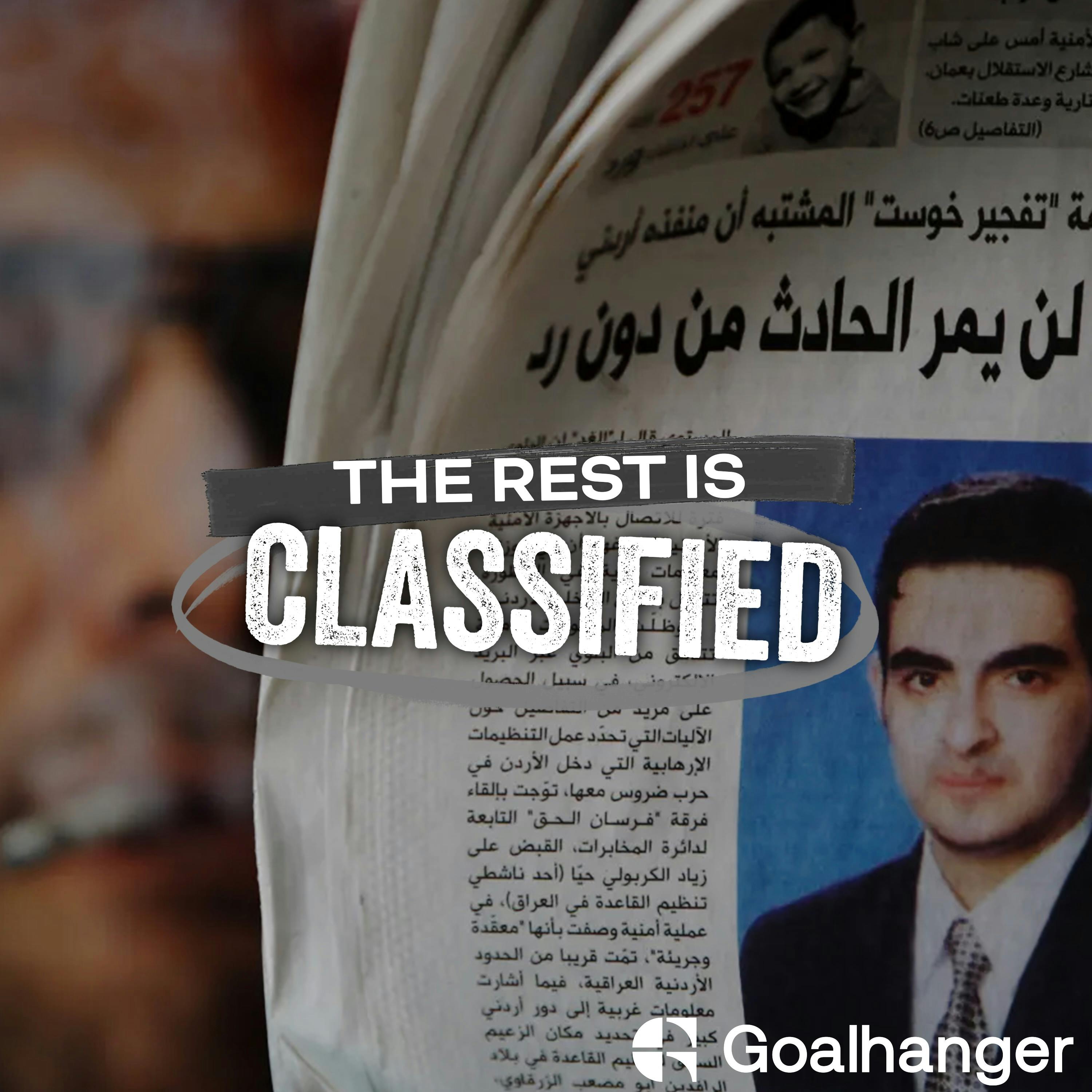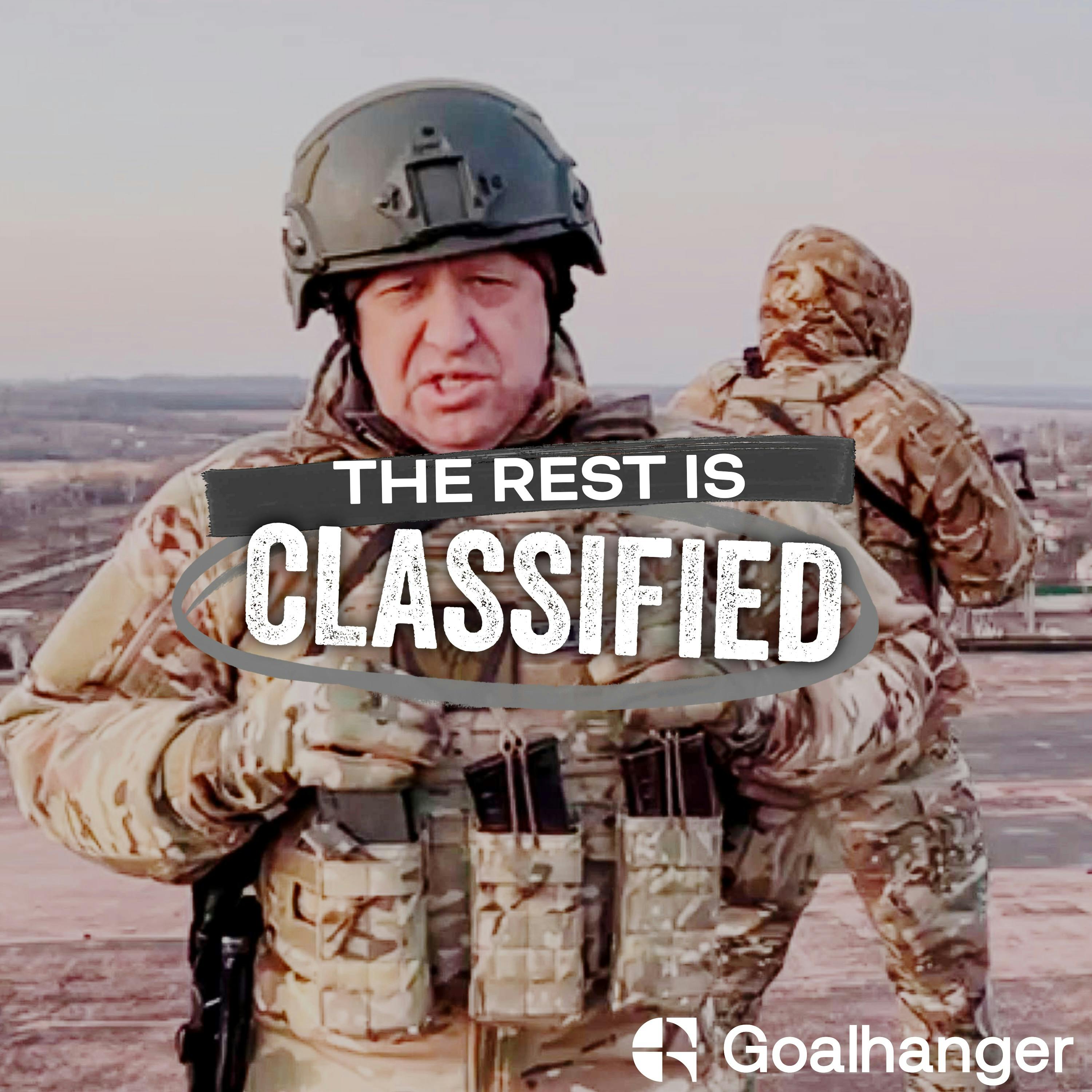94. JFK vs the CIA: The Mafia Plot (Ep 5)
"It's personal now ." The CIA's failure at the Bay of Pigs does not end the fight with Cuba; instead, the heat's actually going to get turned up. The Kennedy brothers are now even more committed to defeating Castro.
Join Gordon and David as they detail the ongoing assassination attempts on Castro. The mob is back, attempting to use the exact same plan as before: poison pills. Hear the wild stories of near-misses, including the frozen poison pill that burst inside a freezer just before a waiter could put it in Castro's chocolate shake. This is the tense calm before a new, much larger crisis is about to engulf the Kennedy administration.
-------------------
Join The Declassified Club: Start your free trial at therestisclassified.com - go deeper into the world of espionage with exclusive Q&As, interviews with top intelligence insiders, quarterly livestreams, ad-free listening, early access to episodes and live show tickets, and weekly deep dives into original spy stories. Members also get curated reading lists, special book discounts, prize draws, and access to our private chat community.
To sign up to the free newsletter, go to: https://mailchi.mp/goalhanger.com/tric-free-newsletter-sign-up
-------------------
Order a signed edition of Gordon's latest book, The Spy in the Archive, via this link.
Order a signed edition of David's latest book, The Seventh Floor, via this link.
-------------------
Email: classified@goalhanger.com
Twitter: @triclassified
Video Editor: Nathan Copelin
Social Producer: Emma Jackson
Producer: Becki Hills
Senior Producer: Dom Johnson
Exec Producer: Tony Pastor
Learn more about your ad choices. Visit podcastchoices.com/adchoices
Join Gordon and David as they detail the ongoing assassination attempts on Castro. The mob is back, attempting to use the exact same plan as before: poison pills. Hear the wild stories of near-misses, including the frozen poison pill that burst inside a freezer just before a waiter could put it in Castro's chocolate shake. This is the tense calm before a new, much larger crisis is about to engulf the Kennedy administration.
-------------------
Join The Declassified Club: Start your free trial at therestisclassified.com - go deeper into the world of espionage with exclusive Q&As, interviews with top intelligence insiders, quarterly livestreams, ad-free listening, early access to episodes and live show tickets, and weekly deep dives into original spy stories. Members also get curated reading lists, special book discounts, prize draws, and access to our private chat community.
To sign up to the free newsletter, go to: https://mailchi.mp/goalhanger.com/tric-free-newsletter-sign-up
-------------------
Order a signed edition of Gordon's latest book, The Spy in the Archive, via this link.
Order a signed edition of David's latest book, The Seventh Floor, via this link.
-------------------
Email: classified@goalhanger.com
Twitter: @triclassified
Video Editor: Nathan Copelin
Social Producer: Emma Jackson
Producer: Becki Hills
Senior Producer: Dom Johnson
Exec Producer: Tony Pastor
Learn more about your ad choices. Visit podcastchoices.com/adchoices
Press play and read along
Transcript
Transcript is processing—check back soon.
The Rest Is Classified — 94. JFK vs the CIA: The Mafia Plot (Ep 5)





